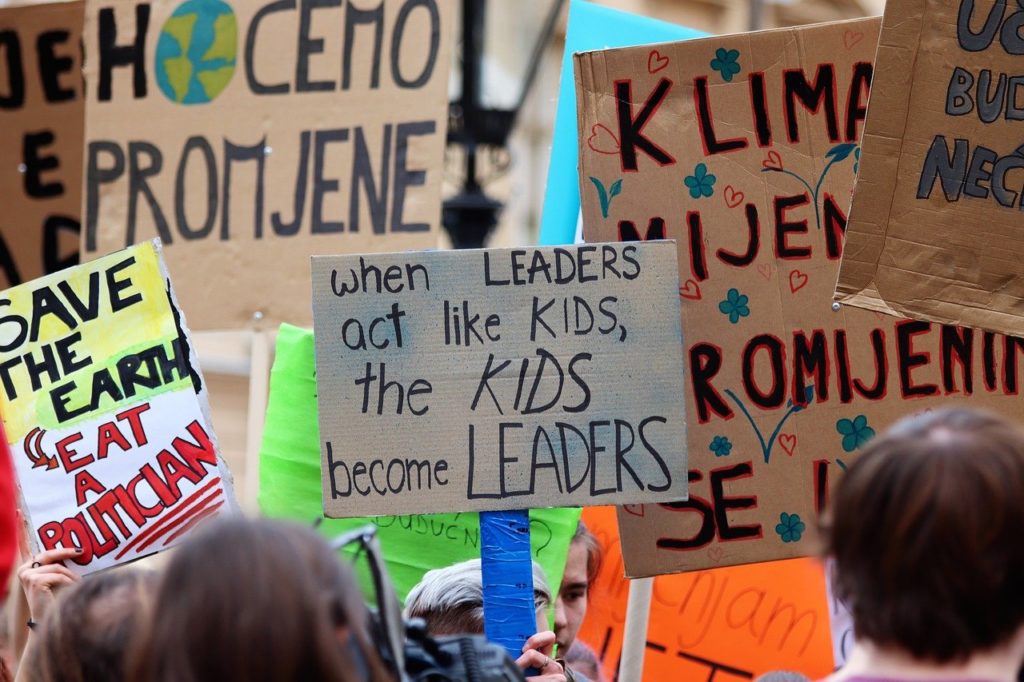1a: Introduction
Why is it important to know about Climate Change? We hear so much about it from many sources, some helpful, some less so.
The United Nations is warning that Climate Change has become a Climate Crisis: a ‘code red for humanity’ which can only be solved by global collaboration.
Have a listen to Cat Scott introduce the topic and the course.
Dr Cat Scott is a University Academic Fellow in Biosphere-Climate Interactions. The overall aim of her research is to understand the extent to which land use change (specifically, eliminating deforestation and engaging in large-scale landscape restoration) can help mitigate climate change. She is Director of the Leeds Ecosystem, Atmosphere and Forest (LEAF) Centre. Cat has served as an academic consultant for the EU in developing land use strategy. She is passionate about communicating climate science and was the academic lead on the BBC’s Terrific Scientific Trees Investigation. She also won the Climate Change zone of “I’m a scientist get me out of here!” (2016). Cat has been instrumental in helping Leeds DEC develop our Climate Curriculum and coordinating the support of other academics at the University of Leeds and we are hugely grateful to her!

This is nothing less than “a code red for humanity“. The alarm bells are deafening, and the evidence is irrefutable”.
The UN Secretary-General António Guterres talking about the latest IPCC Report 2021
One thing we know for certain, it will touch every aspect of the life of young people currently in school or college in the UK, and every young person across the world.
“If we don’t take action, the collapse of our civilisations and the extinction of much of the natural world is on the horizon.” David Attenborough 2018


The COVID pandemic showed that societies are capable of swift and far-reaching changes in a very short space of time. To find solutions and build our resilience to the big climate changes that are coming, we need knowledge and understanding in all areas – from science and technology to psychology and culture.
What does all of this mean for you, born into this moment in history?
Classroom Activity: Climate Change – where do I stand?

At the start of this course, let’s see where we all stand on some of these issues. Around the room there are some statements. Go and stand beside the one which best describes your thoughts and feelings about climate change at the moment.

Classroom Activity – Paired Task:
Today you are going to start an activity with your partner which you will continue over the next few sessions. You are going to create a ‘concept map’ showing your ideas about Climate Change.
Paired Activity: Climate concept map introduction
Concept mapping is a way of representing ideas visually. It helps you make sense of the concepts and ideas and the relationships in a topic.
Tips: if you’re not familiar with concept mapping, you might find these tips helpful.
- Use a large sheet of paper (A3 A2 or A1) and some coloured pens – you will be adding to your map as we move through the sections
- It’s often helpful to write the ideas/ concepts on small bits of paper or post-its, so that you can move them about/ reorganise them as you develop the map
- Write the ideas first; then draw lines and arrows to show how they connect – creating a cause and effect web
- Don’t worry about getting it right or wrong (there are lots of different ways to organise the concepts and the important thing is that how you arrange and link them helps you to make sense of the complex topic)
As you find out more information you will be adding new concepts to your map and making links between the different ideas. Here is a very simple one on the topic of ‘biodiversity loss’.
Your task now:
Your concept map will become much more complex than the one above but, as a first step, use your post-its / small pieces of paper to write down at least 10 key ideas that you think you will need to include on your concept map, then place them on your paper and talk to your partner about how they are connected. Don’t write anything on your main sheet yet!
